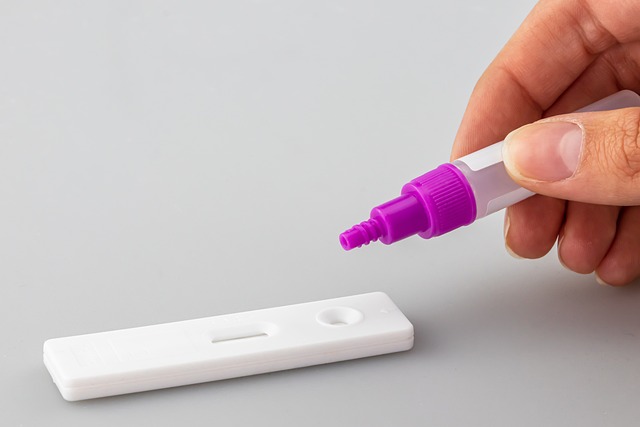Nursing Training in Munich: What Aspiring Nurses Are Looking For
Munich’s nursing education scene is advancing with institutions offering comprehensive training, hands-on experience, and modern curriculum. Students in Munich can explore programs like Nursing Assistant, Bachelor’s in Nursing, and more, all delivered with supportive learning environments and clear paths into hospital, outpatient, and elder care settings.

Nursing training in Munich presents diverse pathways for aspiring healthcare professionals, ranging from vocational qualifications to academic degrees. The city’s educational institutions have adapted to meet evolving healthcare demands while maintaining Bavaria’s reputation for excellence in medical training. As nursing roles continue to expand in scope and responsibility, Munich’s training programs have responded by offering specialized curricula that prepare students for the complex challenges of modern healthcare environments.
Nursing Assistant Courses as Entry Points to Healthcare
Nursing assistant courses in Munich serve as valuable stepping stones for those beginning their healthcare journey. These programs typically span 1-2 years and focus on fundamental patient care skills, vital sign monitoring, and basic medical procedures. Munich’s vocational schools (Berufsfachschulen) offer state-recognized qualifications that combine classroom instruction with supervised clinical rotations in local healthcare facilities. These courses are particularly accessible as they often require minimal previous qualifications, making them ideal for career changers or those entering the workforce.
The curriculum emphasizes practical skills development alongside theoretical knowledge of anatomy, physiology, and healthcare ethics. Students learn essential care techniques while developing communication skills necessary for patient interaction. Many facilities in Munich, including the München Klinik network and Schwabing Hospital, partner with training institutions to provide placement opportunities for nursing assistant trainees, creating a direct pathway to employment upon qualification.
Bachelor’s in Nursing: Academic Pathways in Munich
The evolution of nursing education in Munich reflects the profession’s increasing complexity, with Bachelor’s degree programs now firmly established across the city. The Munich University of Applied Sciences (Hochschule München) and Catholic University of Applied Sciences (Katholische Stiftungshochschule München) offer internationally recognized BSc Nursing programs that combine scientific rigor with practical application. These three to four-year degrees prepare graduates for advanced clinical practice, leadership roles, and specialized areas of healthcare.
Bachelor’s programs in Munich typically follow a dual education model, alternating between academic semesters and clinical placements. Students engage with evidence-based practice, healthcare research methodologies, and advanced clinical reasoning. The curriculum often includes specialized modules in areas such as pediatric nursing, mental health, or critical care. Importantly, these degrees align with European qualification frameworks, enhancing graduate mobility across the EU healthcare sector and opening doors to international career opportunities.
Practical Clinical Experience Requirements in Munich
Practical clinical experience forms the cornerstone of nursing education in Munich, with programs mandating between 2,300 and 2,500 hours of supervised practice. This hands-on training takes place across diverse healthcare settings, including Munich’s university hospitals, community clinics, rehabilitation centers, and specialized care facilities. The city’s position as a medical hub provides students with exposure to cutting-edge treatments and diverse patient populations.
Munich’s approach to clinical education follows a structured progression model where students gradually assume greater responsibility under supervision. Early placements focus on basic care and observation, while advanced students participate in complex care planning and implementation. The clinical mentor system pairs students with experienced practitioners who provide guidance and assessment throughout rotations. This mentorship model has proven particularly effective in bridging theoretical knowledge with practical application, preparing graduates who are confident and competent in real-world healthcare environments.
Elder & Outpatient Care Specialization Options
As Munich’s population ages, specialized training in geriatric and outpatient care has become increasingly important in nursing education. Dedicated modules and specialized tracks within both vocational and academic programs address the unique challenges of caring for elderly patients and those requiring home-based healthcare services. The Munich Center for Geriatric Care collaborates with educational institutions to provide specialized training opportunities in dementia care, palliative approaches, and mobility preservation.
Outpatient care training focuses on autonomous practice, health assessment, and coordinating care across different healthcare providers. Students learn to navigate Munich’s integrated healthcare system while developing skills in patient education and preventive care. Programs increasingly incorporate digital health technologies relevant to remote monitoring and telehealth—reflecting the growing importance of these approaches in Munich’s healthcare landscape. Graduates specializing in these areas find abundant employment opportunities as Munich continues to expand its community-based care networks.
Supportive Training Environments in Munich’s Institutions
Munich’s nursing schools have developed reputations for their supportive learning environments that recognize the demanding nature of healthcare education. Institutions like the Städtisches Klinikum München nursing school and the Diakoniewerk München-Maxvorstadt implement comprehensive student support systems, including academic tutoring, psychological counseling, and peer mentorship programs. These resources help students navigate the challenges of balancing theoretical study with intensive clinical placements.
Simulation laboratories represent another key component of Munich’s supportive training approach. These facilities recreate clinical scenarios using advanced mannequins and medical equipment, allowing students to practice procedures in a safe environment before performing them on actual patients. The Technical University of Munich’s nursing simulation center features state-of-the-art technology that replicates hospital settings with remarkable fidelity, enabling students to develop confidence and competence through repeated practice and structured feedback.
Munich’s nursing education sector also emphasizes interprofessional learning, with opportunities for nursing students to train alongside medical, therapy, and social work students. This collaborative approach reflects the reality of modern healthcare delivery and prepares graduates for effective team-based practice. Regular clinical supervision sessions provide space for reflection and professional development, ensuring students process their experiences and continuously improve their practice.
Nursing training in Munich continues to evolve in response to healthcare needs and professional standards. The city’s educational institutions maintain a delicate balance between preserving traditional care values and embracing innovation in healthcare delivery. For aspiring nurses, Munich offers educational pathways that not only lead to recognized qualifications but also instill the adaptability and critical thinking skills essential for long-term career success in an ever-changing healthcare landscape.




